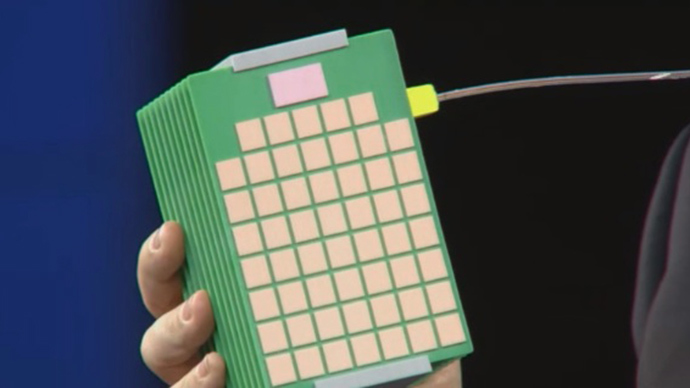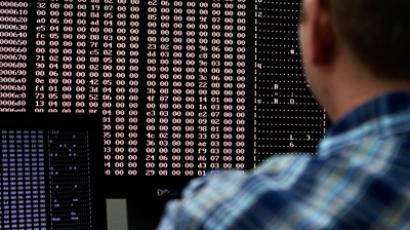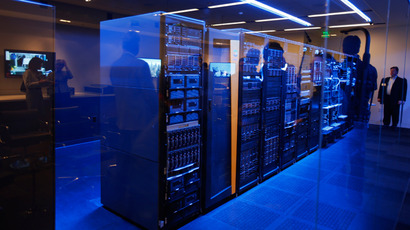Supercomputer revolution: Meet HP’s The Machine – an all-in-one, mega-powerful photonic device

HP has unveiled its revolutionary supercomputer, The Machine. The all-in-one device – a server, workstation, PC and phone – uses photonic memory and is portable, potentially opening doors to a more powerful, energy-efficient global computer industry.
The Machine will be able to hand vast quantities of data using far less electricity, HP claims, adding that its system will be six times more powerful than existing servers and require 80 times less energy.
According to HP, today the IT industry uses as much energy as is used by all of Japan to run the immense volumes of data stored in public clouds alone, so this technology will save the energy produced by several nuclear power plants worldwide.
However exciting, the project is still under development and the company isn’t expecting to produce its first prototypes until 2015. The first devices equipped with The Machine are not scheduled to be released until 2018.
The new data transfer system will be based on silicon photonics to transmit data, as an alternative to copper wires, using lasers that are just 1/4 the diameter of a human hair. HP promises it will boost the speed of the system whilst reducing energy requirements.
To operate The Machine, the company has invented a new type of memory called “memristors,” which are fast, allow permanent storage even if the power is cut off and are designed to replace current storage devices.
HP claims The Machine is capable of managing 160 petabytes in 250 nanoseconds. The device’s main difference is that it will be operating clusters of specialized cores while today’s computers operate much smaller numbers of generalized cores. This is seen as the key for the Internet of Things future network, which will bundle together all digitalized knowledge and make it accessible and usable by devices such as The Machine.
HP’s chief technology officer, Martin Fink, said The Machine’s technology could already be scaled down to be used in smartphones, which could eventually lead to making handheld devices with 100 terabytes of memory.

When released, the Machine is expected to replace a data center’s worth of equipment with a single refrigerator-size device.
Naturally, The Machine won’t be able to use any of the existing operational systems, so it will require HP to develop a new OS capable of operating mass data volumes in no time.
Although it was only recently unveiled at Hewlett-Packard's Discover customer event in Las Vegas, the development has already been criticized by Dell, another US computer technology company, who called the attempt "laughable."
“The notion that you can reach some magical state by rearchitecting an OS is laughable on the face of it,” John Swainson, president of software at Dell, told journalists in San Francisco, adding that "the basic elements of computing, like processor and memory, are likely to be reconfigured in some way, but not so radically that existing software won’t run."
HP is much more optimistic, placing high hopes in The Machine. Saying it will not be just for huge supercomputers, the company promises its new technology could be used in smaller devices such as smartphones and laptops. It already sees a variety of future applications, from business to medicine, for The Machine.
“Your doctor could compare your symptoms and genomics with every other patient around the world to improve your health outcomes, instantly, without language barriers or privacy breaches,” HP says.
The company said its device will also address data governance and security issues in an effort to better protect information.














